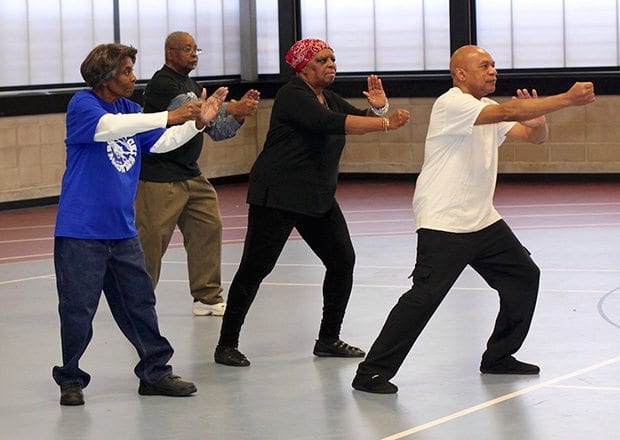
Adults mistakenly assume that they are permanently protected against an array of illnesses. For the most part, that is true. Many have endured the discomfort and inconvenience of several infectious diseases, while others — typically born in the 1970s or later — have been inoculated against these invaders.
Protection from these diseases, whether natural or provided through a needle, is not necessarily permanent. The immune system begins to wane with age, thus diminishing the ability to fend off infectious organisms.
The elderly — those 65 and above — are of great concern. They have a higher incidence of many chronic diseases, such as heart and kidney disease, diabetes and several cancers, which make them more vulnerable to certain infections and their complications.
There are four vaccinations people 60 and older must have, say medical experts.
The first is a yearly flu shot. People tend to dismiss the flu as just a more serious common cold that will go away with rest and plenty of fluids.
In most cases, this is true, but in too many cases it is not. Influenza and pneumonia are the ninth leading cause of death for all ages in this country. The elderly are among the hardest hit. Pneumonia is the seventh largest killer of older adults, especially during the winter months. Seniors with chronic diseases are even greater targets.
That’s why the second vaccine recommended for those 65 and older is to protect against the most common type of pneumonia (pneumococcal). Unlike flu shots, only one inoculation is required.
The third vaccine recommended for seniors is the herpes zoster vaccine (Zostavax) that was approved by the Food and Drug Administration (FDA) in 2007. The shot is recommended only for seniors who have had chickenpox.
Herpes zoster, better known as shingles, is a painful, blistering skin rash due to the virus that causes chickenpox. The immune system cannot completely obliterate this virus. Instead, it damps down its impact, but the virus remains dormant in certain nerves in the body’s nervous system.
Shingles can occur if the virus becomes active again in these nerves years later. The reason for this sudden resurgence is not clear. Often only one attack occurs, but that’s more than enough for most people. The pain can be quite excruciating and last for several weeks.
This inoculation cannot prevent chickenpox. Nor can it treat shingles, but it can significantly reduce the recurrence of an outbreak. The Centers for Disease Control and Prevention recommend the shot for those 60 and older although the FDA in March 2011 approved it for people as young as 50.
The shingles vaccine protects not only the recipient, but others as well. If an adult or child has direct contact with the shingles rash on an afflicted person and has not had chickenpox as a child or a chickenpox vaccine, that person can develop chickenpox, not shingles.
Barbara Walters found that out the hard way. The 84-year-old broadcaster apparently never had chickenpox as a child and developed the disease from close contact with a person who had shingles.
Those with active cases should avoid physical contact with anyone who has a weak immune system, newborns and pregnant women.
Only one inoculation of Zoster is recommended at this time — even for those who have suffered a bout of shingles.
One other vaccine is recommended for seniors. All adults, especially those 65 years and older, should get one dose of Tdap, a booster for tetanus, diphtheria and accelular pertussis (whooping cough). It has been found that the protection against these illnesses wanes with time.
A Td booster to guard against tetanus and diphtheria is then recommended every 10 years.
In addition, people with chronic conditions or those who engage in risky sexual behavior may require additional shots. For instance, people who have multiple sex partners or men who have sex with men are urged to be vaccinated against hepatitis B, a sexually transmitted virus that can result in liver damage.
Though baby boomers might think that the days of vaccinations are way behind them, it’s clear that is not the case.







